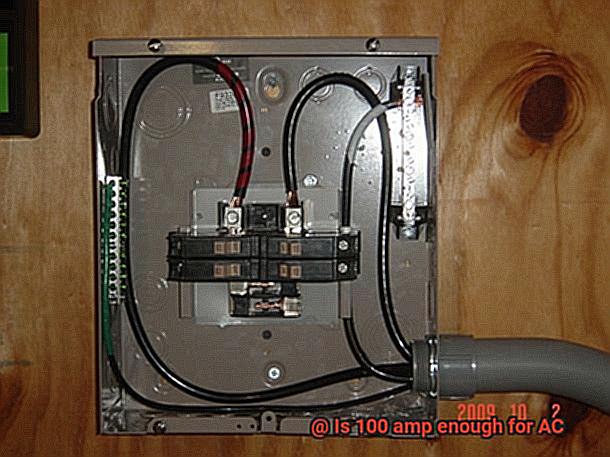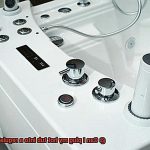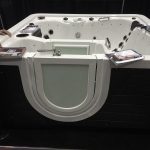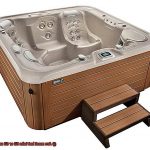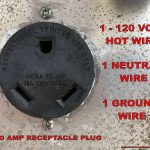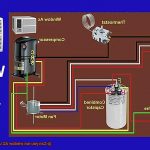Are you tired of sweating through the summer months and considering installing or upgrading your air conditioning system? Or perhaps you’ve been experiencing power cuts or electrical overloads and wondering if your current AC unit is too much for your electrical panel. Either way, you may be asking yourself the question, “Is 100 amp enough for AC?”.
Let’s face it- air conditioning consumes a significant amount of electricity, accounting for a substantial portion of your energy bill. Ensuring that your electrical system can handle the power requirements of your AC unit is crucial to avoid potential hazards such as fires or damage to appliances. But how much power is enough?
In this blog post, we’ll dive deep into the topic and provide you with everything you need to know about whether 100 amps are sufficient for your AC. We’ll cover everything from understanding what amps are, the power consumption of AC units, and the load on the electrical panel to possible dangers of an overloaded panel.
Whether you’re a homeowner planning an AC installation or an existing homeowner curious about your electrical panel’s capacity, we’ve got you covered. So sit back, relax, and read on to get all your questions answered. Let’s jump in.
Contents
Considerations for AC Power Requirements
It’s important to ensure that your AC unit has the right ampere rating to effectively cool your space. There are several key factors to consider when determining the appropriate ampere rating for your AC unit.
Firstly, the size of your home or business is a critical factor to consider. Larger spaces require more power to cool effectively, so it’s essential to choose an AC unit with the appropriate BTU rating. Additionally, the climate you live in is another key consideration as hotter environments may require more energy to maintain a comfortable indoor temperature.
Furthermore, the type of AC unit you have installed also has an impact on power consumption. For instance, central AC units that circulate cool air throughout the entire space typically require more power than window units or portable ACs. Newer models of air conditioning units tend to be more energy-efficient and may require less power overall.
It’s crucial to ensure that your electrical panel can handle the amperage required by your AC unit. While 100-amp service is generally suitable for most residential homes with central AC units, it’s always best to consult with a licensed electrician before making any changes to your electrical system.
The Size and Efficiency of the AC Unit
When it comes to selecting an AC unit, it’s crucial to find the perfect balance between size and efficiency. One of the most significant factors to consider is the size of the space that needs cooling. A small unit will struggle to keep up with demand, while an oversized one will waste energy and cost more money to operate.
In addition, the efficiency rating of the AC unit is essential. SEER (Seasonal Energy Efficiency Ratio) measures how much cooling power an AC provides relative to the amount of electricity it consumes. The higher the SEER rating, the more energy-efficient the unit is. Opting for an AC unit with a high SEER rating can pay off in lower energy bills over time.
But what about electrical service? Is 100 amp sufficient for an AC unit? Well, it depends on the model and size you choose. Typically, a 100 amp electrical service should be adequate for a central air conditioning system with a SEER rating of 14 or lower and a BTU (British Thermal Unit) rating of 24,000 or less. However, if you have a larger home or a more powerful AC unit, upgrading your electrical service may be necessary to accommodate increased demand.
Other Electrical Loads in the Home
Aside from air conditioning units, various appliances such as refrigerators, washing machines, and dryers, as well as lighting fixtures, home entertainment systems, and charging stations for electronic devices, all contribute to a household’s electrical demand. However, it’s important to note that each of these loads has its unique power requirements.
For instance, a refrigerator typically requires between 2 and 4 amps, while a washing machine can require up to 20 amps during operation. Similarly, a single lighting fixture may only require a few watts of power, while a home theater system could require hundreds of watts.
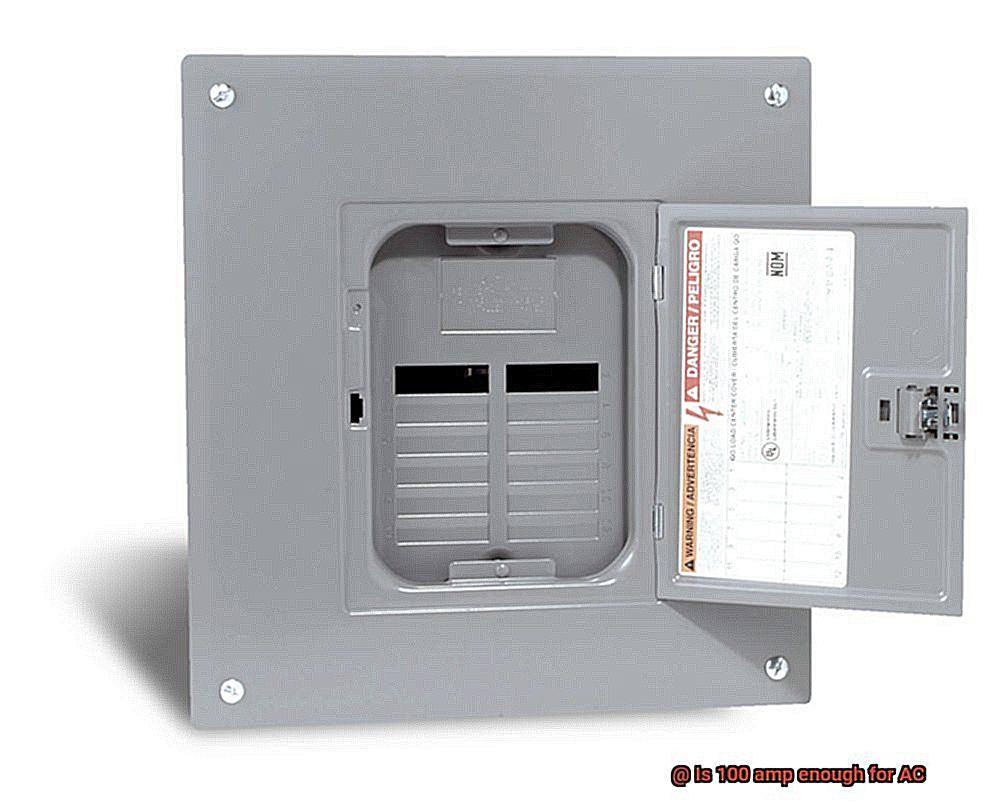
To accurately determine if 100 amps is enough for AC and other electrical loads in the home, it’s necessary to calculate the total power demand of all devices and appliances. This can be done by adding up the wattage or amperage of each load and comparing it to the available amperage provided by the electrical service panel.
If the total demand exceeds the available capacity, upgrading the electrical service panel or adding a subpanel may be necessary to accommodate the additional loads. It’s also crucial to ensure that wiring and circuit breakers are properly sized and installed to prevent overloading and potential hazards such as electrical fires.
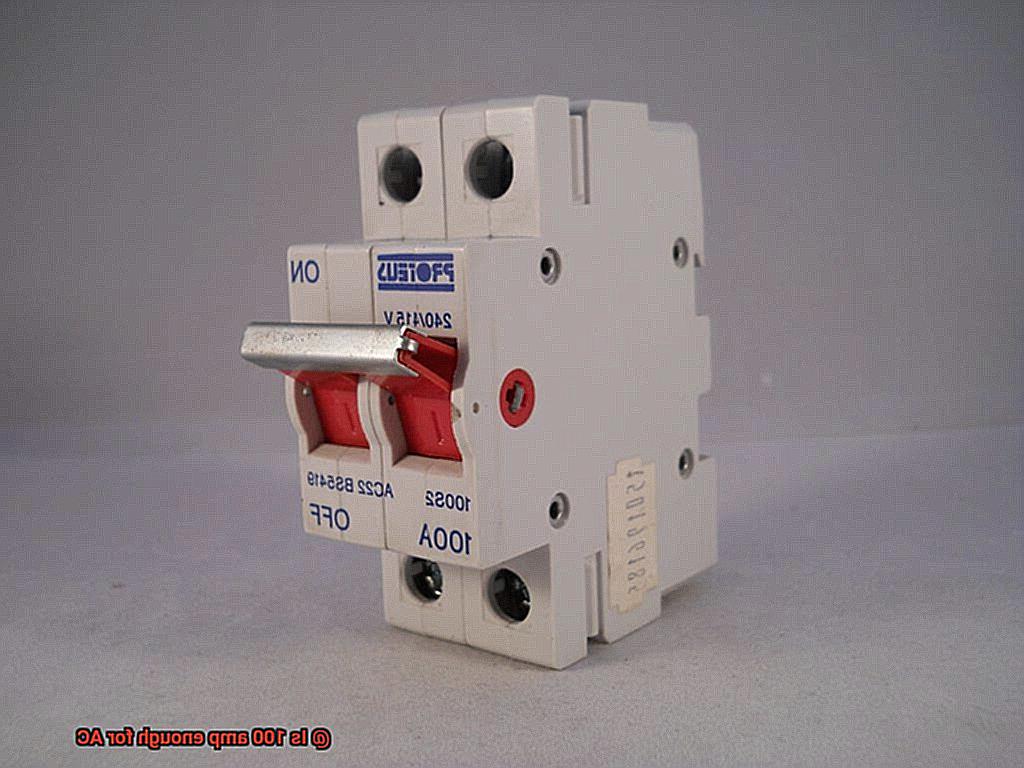
Consulting with a Licensed Electrician
Installing an AC unit is a great solution, but before you do, it’s crucial to consult with a licensed electrician. Here’s why:
First and foremost, an electrician can assess your home’s electrical system and determine if it can handle the added load of an AC unit. They’ll also examine your electrical panel to see if it can provide enough power or if an upgrade is necessary. It’s important to note that older homes may have outdated electrical systems that are not equipped to handle modern AC units’ power demands. In this case, an electrician may recommend upgrading the electrical panel and wiring to accommodate the increased load.
Not only will a licensed electrician ensure that your electrical system is capable of handling the added load, but they’ll also make sure that your AC unit is installed safely and up to code. Improper installation can lead to decreased efficiency, increased energy costs, and pose a safety hazard. By hiring an electrician, you’ll have peace of mind knowing that your AC unit is correctly installed and safe for use.
Lastly, consulting with a licensed electrician when installing an AC unit is essential to avoid any potential electrical hazards or issues down the line. It’s always better to be safe than sorry, and by taking this extra step, you can protect your home and family from danger.
Advantages of Installing a Higher Amperage Service
If so, a higher amperage service might be the solution to your problems. Not only does it offer numerous advantages, but it also enhances your comfort and reduces energy consumption.
The first advantage of a higher amperage service is increased capacity. This means that your AC system will operate more efficiently and effectively, resulting in cooler temperatures with less strain on the system. As a result, you’ll end up with lower energy bills, reducing your expenses.
Another significant advantage of a higher amperage service is improved performance. Your AC system will be able to handle peak demand periods without experiencing any drops in performance. This ensures that you’ll experience consistent cooling throughout the day, regardless of the outside temperature.
Additionally, a higher amperage service can provide enhanced comfort. It ensures that your AC system maintains a comfortable indoor temperature even during the hottest months of the year. You can enjoy a cool and comfortable home environment without any disruptions or discomfort.
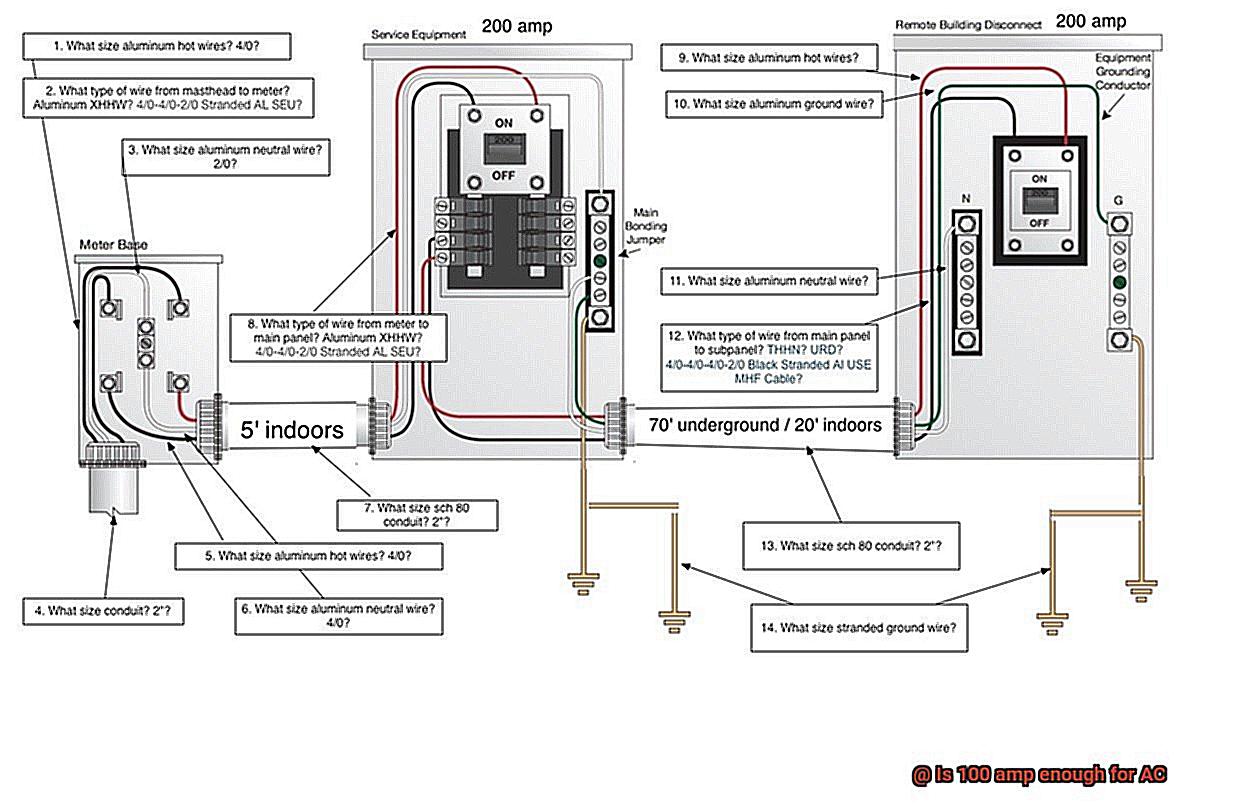
Lastly, a higher amperage service can extend your AC system’s lifespan by reducing the strain on its components. This means you’ll avoid costly repairs or replacements down the line, saving you money in the long run.
RMIgA7SuEWs” >
Conclusion
To wrap things up, the answer to whether 100 amp is sufficient for AC depends on several factors. These include the size and efficiency of your unit, where you live, and other electrical loads in your home. Although a 100-amp service is usually adequate for most homes with central AC units, it’s always wise to consult a licensed electrician before making any modifications to your electrical system.
When it comes to installing or upgrading an AC unit, consulting with a licensed electrician is critical. They can evaluate your home’s electrical system, determine if it can handle the additional load of an AC unit, and guarantee that your AC unit is installed safely and meets code requirements. Moreover, they’ll ensure that wiring and circuit breakers are correctly sized and installed to prevent overloading and potential hazards like electrical fires.
If you’re experiencing power outages or electrical overloads or want to increase comfort while reducing energy consumption, upgrading to a higher amperage service may be the solution. This upgrade provides numerous benefits such as increased capacity, improved performance, enhanced comfort, and extended lifespan of your AC system.
In summary, ensuring that your electrical system can handle the power demands of your AC unit is essential to avoid potential hazards such as fires or harm to appliances.

